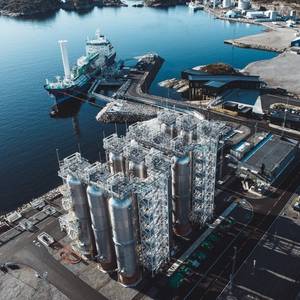
Technip Energies Loading Systems has secured a contract to supply three fully electric marine loading arms for phase 2 of the Northern Lights CO2 transport and storage project in Øygarden, Norway.The loading solution will be installed at the new Northern Lights jetty and will consist of three marine loading arms fully qualified to transfer liquefied CO2.
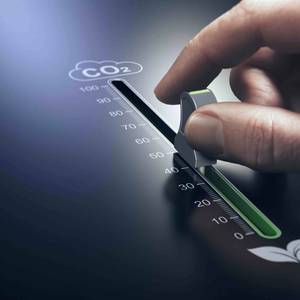
German Economy Minister Katherina Reiche on Monday unveiled a 6 billion euro ($7 billion) funding initiative aimed at industrial decarbonisation, incorporating carbon capture and storage (CCS) technology into the country's climate protection contracts for the first time.The program targets energy-intensive sectors such as chemicals, steel, cement and glass

The United States has everything it needs to lead in offshore carbon capture and storage (CCS), except the rules to make it happen.Nearly four years ago, Congress gave the Department of the Interior authority to oversee offshore carbon sequestration. The Infrastructure Investment and Jobs Act (IIJA) of 2021 amended the Outer Continental Shelf Lands Act (OCSLA) to authorize competitive leasing
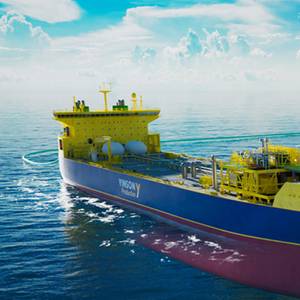
Yinson Production and “K" Line Energy Shipping (UK) (KLES), a London-based subsidiary of Kawasaki Kisen Kaisha ("K" LINE), have entered into an agreement to jointly develop and market solutions for the transportation and injection of liquefied CO2.Under the memorandum of understanding (MoU)
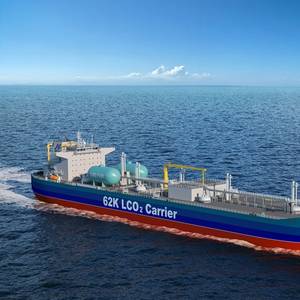
PETRONAS CCS Ventures Sdn. Bhd. (PCCSV) MISC Berhad (MISC), and Mitsui O.S.K. Lines, Ltd., (MOL) announced the incorporation of a strategic joint venture (JV), Jules Nautica Sdn. Bhd. This JV will lead the development and act as the ultimate owner of Liquefied Carbon Dioxide (LCO₂) carriers
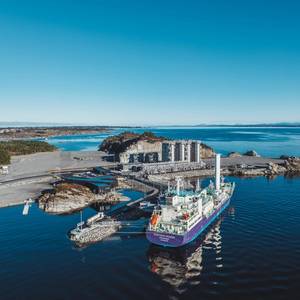
DNV has published a report forecasting that carbon capture and storage (CCS) capacity is expected to quadruple by 2030, with sharp increase project pipeline capacity indicating that CCS is at a turning point.The immediate rise in capacity is being driven by short-term scale up in North America and Europe, with natural gas processing still the main application for the technology
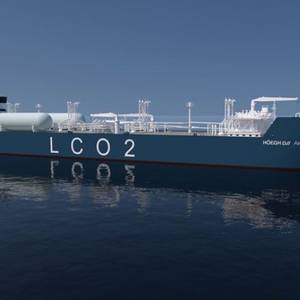
Höegh Evi and Aker BP have secured an Approval in Principle (AiP) from DNV for a next-generation liquefied CO2 (LCO2) carrier.The vessel, developed in Norway by Höegh Evi, Aker BP and Moss Maritime, is designed to transport captured CO2 safely and cost-efficiently from European industrial emitters to offshore sequestration sites on the Norwegian Continental Shelf (NCS).
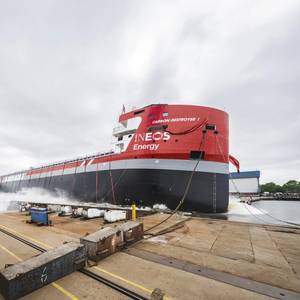
INEOS and Royal Wagenborg have launch and named the first European built offshore CO2 carrier for carbon capture and storage (CCS) projects, marking a major for Project Greensand and CCS schemes across the EU.The CO2 carrier has been named Carbon Destroyer 1 at the ceremony held at the Royal Niestern Sander shipyard in the Netherlands

Technology group Wärtsilä has made its carbon capture solution (CCS) commercially available to the global maritime industry, aimed at accelerating the decarbonization of shipping.According to Wärtsilä’s tests, the new ‘Wärtsilä Carbon capture solution’ is proven to reduce vessel CO2 emissions by up to 70%
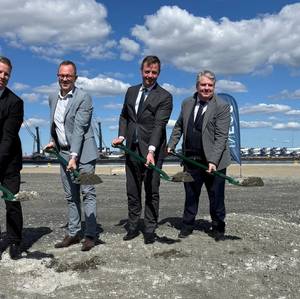
The construction of CO2 transit terminal at Port Esbjerg in Denmark has officially started marking another milestone in the development of Greensand carbon capture and storage (CCS) project.The terminal will feature six large holding tanks, each capable of storing approximately 1,000 tonnes of liquefied CO2 to be shipped for permanent storage in the Greensand reservoir.
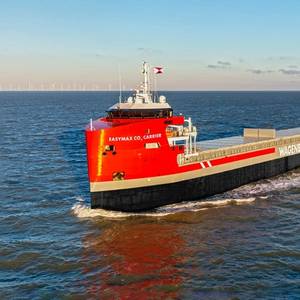
The first European built CO2 carrier, dedicated for work at the Greensand carbon capture and storage (CCS) project, will be christened and launched on May 14, 2025.All ship sections of the vessel have now been successfully constructed and assembled at Royal Niestern Sander shipyard in the north of the Netherlands.
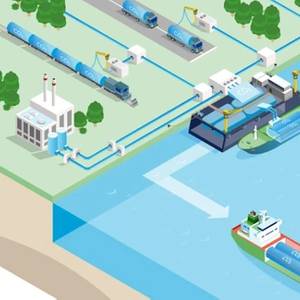
DNV has awarded a detailed Approval in Principle (AiP) to Shell International Trading and Shipping Company and Brevik Engineering for their design of a 74,000 cubic meters (cbm) liquid carbon dioxide (LCO2) carrier.The vessel is specifically designed for the Asia Pacific market to enable cost competitive transport of CO2.